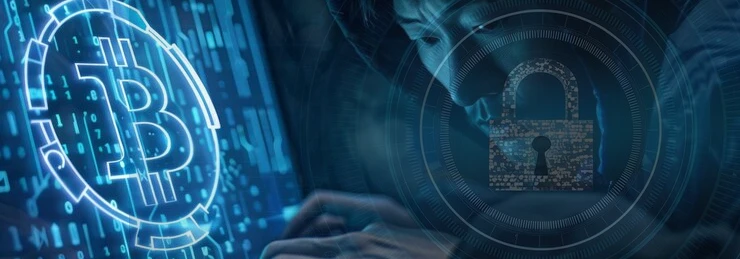- Home
- Crypto News
- Addressing Crypto security: Essential tips and techniques
Addressing Crypto security: Essential tips and techniques

Cryptocurrencies have made their way into almost every existing industry. Although they are decentralized in nature and easy to use, there are also equal security risks embedded in using them. A single error might cause irreversible financial loss, like falling into a phishing scheme or misplacing secret keys. To protect digital assets, it is important to implement thorough security measures. This requires utilizing safe wallets, using strong passwords and two-factor authentication (2FA), being watchful against phishing attempts, keeping software updated, routinely backing up the wallet, using secure networks, and remaining educated about the new threats and security measures. With this guide, users can improve their cryptocurrency security by implementing several tips and techniques.
Importance of Crypto Security
It is the individual holder’s responsibility to secure Bitcoin holdings, unlike in traditional financial systems where banks and other financial entities take on this responsibility. The worldwide reach and anonymity of blockchain technology make it difficult to retrieve stolen money, underscoring the importance of implementing strict security protocols. Hardware wallets offer offline storage and protect private keys from internet dangers, but software wallets need multi-layered security and robust encryption to prevent unwanted access. A second line of protection is added by using two-factor authentication (2FA) and strong passwords, which makes it much more difficult for hackers to access accounts.
Essential Top Tips for Crypto Security
In the ever-evolving world of cryptocurrency, safeguarding your assets is paramount. As digital currencies gain popularity, the risk of cyber threats increases, making security a top priority. Crypto security is fundamental since the user will use it for different online activities, including gambling on reputable crypto dice sites, trading, and even for staking purposes. So, it is better to have a secured wallet which can be hot or cold, the user can choose either of them based on which suits them the most.
Choose the Right Wallet:
- Secure Wallets: The first and most important step in protecting cryptocurrency investments is selecting a secure wallet. Wallets come in several varieties, with varying degrees of security while using online gambling sites.
- Hardware Wallets: Devices that keep their private keys offline are called hardware wallets. Examples are the Trezor Model T and the Ledger Nano S. Since these wallets are not online, they are far less vulnerable to viruses and hacking.
- Software wallets: Despite their ease, they are more susceptible to cyber-attacks. To improve security, software wallets must be selected with robust encryption and support for two-factor authentication (2FA).
- Paper wallets: Although they offer a high degree of protection against online dangers, they must be stored carefully to avoid loss or physical harm. Paper wallets should always be created offline and kept in safe, physical places.
Implement strong Passwords:
- Robust Passwords: Instead, create complicated passwords using a combination of special characters, numbers, and letters. Passwords must have a minimum of twelve characters.
- Password managers: Programs such as Bitwarden can help create and safely store strong passwords, reducing the possibility of using the same password for several accounts.
- Two-factor Authentication (2FA): 2FA requires a second form of verification, such as a code delivered to your phone or produced by an authentication app, adding a layer of protection.
Employ Secure Networks:
- Avoid conducting cryptocurrency transactions over unsecured networks, especially public Wi-Fi, which are prone to interception.
- If necessary, use a reputable Virtual Private Network (VPN) to encrypt your internet connection and enhance security.
- Consider dedicating specific devices solely for cryptocurrency activities to minimize exposure to risks.
Advanced Techniques for Crypto Security
In the dynamic world of cryptocurrency, robust security measures are crucial to protect digital assets from evolving cyber threats. Here are essential strategies to fortify crypto defenses:
Multi-Signature (Multi-Sig) Wallets:
Utilize multi-signature wallets that require multiple private keys to authorize transactions. This approach significantly enhances security by reducing the risk of unauthorized access.
Cold Storage:
Cold storage involves keeping private keys completely offline, shielding them from internet-based threats. It remains one of the safest methods for storing large amounts of Bitcoin over extended periods, minimizing exposure to potential breaches.
Secure Operating Environments:
Conduct cryptocurrency operations in secure environments to mitigate risks of leaks and unauthorized access. This proactive measure ensures sensitive transactions and data remain protected.
Hardware Security Modules (HSMs):
Employ hardware security modules (HSMs) for secure digital key management. HSMs are ideal for enterprises managing substantial cryptocurrency holdings as they generate, store, and manage crypto keys with enhanced security measures. By centralizing key management within specialized hardware, the risk of key exposure is minimized, bolstering overall security.
Implementing these advanced techniques strengthens the resilience of crypto assets against cyber threats, ensuring safer transactions and storage practices in the volatile landscape of digital currencies.
Conclusion
The likelihood of theft and illegal access may be greatly decreased by utilizing secure wallets, creating strong passwords and two-factor authentication, and being alert to phishing attempts. Keeping up with developing threats is ensured by keeping up with the latest security trends and best practices. It is important to use only trustworthy platforms when participating in activities such as crypto dice sites to protect the fund.
Johnathon Justice
Johnathon Justice is a English literature major with a background in writing for IT and Fianance sector. He recently joins CryptoEighty as a full time journalist and content curator for latest happenings of crypto space.Latest News
All Latest News-
Want to Try Crypto? Get Started with Free Solana!
8 months ago




